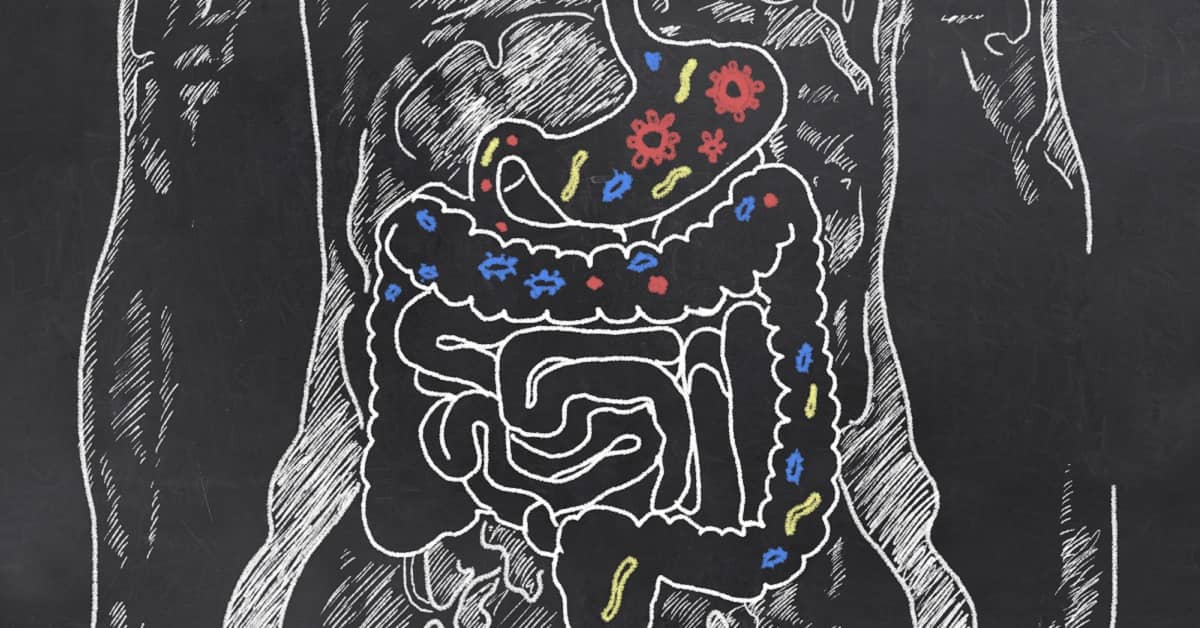
The new research shows this “gut-brain” connection can potentially help heal a number of health problems and may even be involved in the aging process itself.
Gut Microbes Increase Production of New Brain Cells
The intestines contain a large and diverse range of bacteria that play important roles throughout the body.But when the microbiome becomes unbalanced with too many of the wrong kind of bacteria and not enough of the right type -- often thanks to antibiotics -- it can lead to serious health problems.
Replacing the microbiome with good bacteria from a healthy donor can often produce remarkable improvements.
Led by Professor Sven Pettersson from the NTU Lee Kong Chian School of Medicine in Singapore, an international team of scientists transplanted gut microbes from old mice into young mice that are specially raised to be devoid of all microorganisms -- germ-free mice.
A few months later the youngsters showed an increase in neurogenesis – the growth of new neurons in the brain. This came about because the newly populated microbes produced a short-chain fatty acid called butyrate.
Boosts a Longevity Hormone
Butyrate has a large number of important functions in the activity of genes, the immune system, energy metabolism, and the central nervous system, but levels of butyrate decline with aging.Butyrate also stimulates production of a pro-longevity hormone called FGF21 that was shown to markedly extend lifespan in mice.
In another experiment, butyrate was tested on its own, detached from bacteria. Even removed from the microbial environment, it had the same adult neurogenesis effects on the young germ-free mice.
Prof. Pettersson wrote, "We’ve found that microbes collected from an old mouse have the capacity to support neural growth in a younger mouse. This is a surprising and very interesting observation, especially since we can mimic the neuro-stimulatory effect by using butyrate alone.
"These results will lead us to explore whether butyrate might support repair and rebuilding in situations like stroke, spinal damage and to attenuate accelerated aging and cognitive decline."
A Milestone in Research
Butyrate also plays a valuable role in keeping the digestive tract healthy and reducing inflammation. So, in a follow up experiment the research team focused on this area.After the microbial transplant the young mice saw an increase in the length and width of the intestinal villi. These are tiny finger-like structures essential for the absorption of digested nutrients. With aging the viability of the villi is reduced and they become more vulnerable to damage and to cell death.
The scientists believe these findings demonstrate that some of the negative effects of aging can be tackled through enrichment with butyrate.
"We can conceive of future human studies where we would test the ability of food products with butyrate to support healthy aging and adult neurogenesis," added Prof. Pettersson.
Dr. Dario Riccardo Valenzano at the Max Planck Institute for Biology of Aging in Germany, who was not involved in the study, said the Singapore team’s discovery was a milestone in microbiome research and could point to the loss of butyrate-producing microbes as a cause of age-related illnesses.
Professor Brian Kennedy, Director of the Center for Healthy Aging at the National University of Singapore, agreed. In his view, "The findings move forward our understanding of the relationship between the microbiome and its host during aging and set the stage for the development of microbiome-related interventions to promote healthy longevity.”
Although butyrate can be found in dairy foods, this won't necessarily translate to any increased production in the body.
Bacteria produce butyrate by fermenting carbohydrates, so to keep up its production in the gut we need to regularly eat foods high in fiber, such as whole grains, fruits and vegetables. I also recommend taking a good probiotic supplement to support the overall health of your gut microbiome.
While the science of probiotics is shifting rapidly with new discoveries, it now appears that going off and on these supplements – perhaps a month on, a month off – is a better strategy than taking them without a break.
